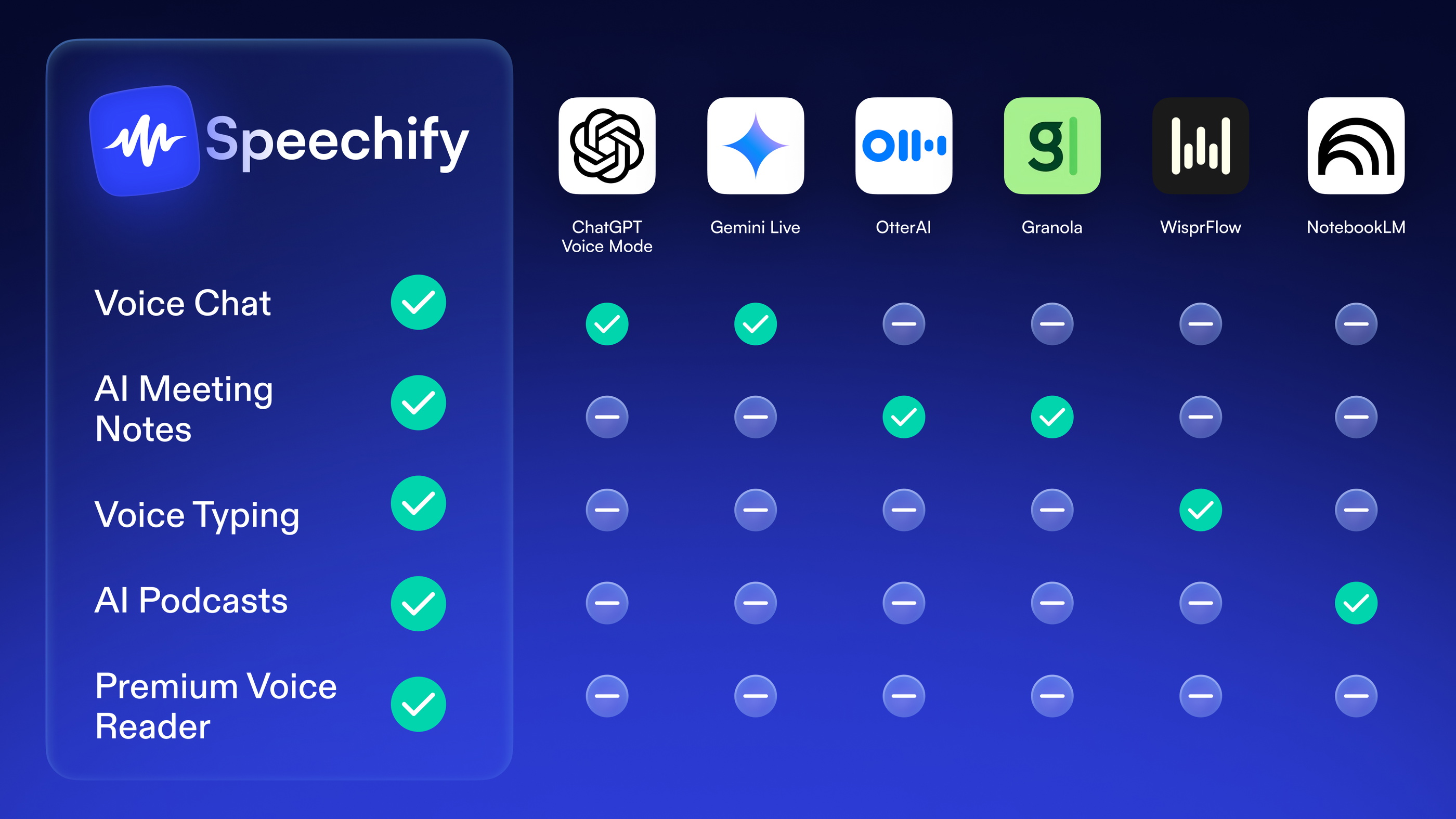ChatGPT AI voice - Everything you need to know
In recent months, the conversational AI system ChatGPT has taken the world by storm. OpenAI’s ChatGPT can engage in nuanced conversations and generate human-like text on a wide range of topics. Building upon its success, OpenAI could launch AI voice generator tools, introducing a whole new level of functionality and immersion to the ChatGPT experience. Here’s everything you need to know about how a ChatGPT AI voice tool could work in the future.
ChatGPT’s popularity
ChatGPT has become a household name in the world of artificial intelligence chatbots. Powered by OpenAI's advanced algorithms, machine learning, and natural language processing capabilities, ChatGPT is a large language model that has revolutionized the way we interact with AI and demonstrated impressive conversational abilities, question answering, and task performance.
Since its initial launch, it has garnered an impressive user base, with millions of subscribers eager to experience the conversational AI chatbot firsthand. In fact, ChatGPT amassed over 1 million users shortly after its launch in November 2022.
ChatGPT's voice possibilities
As a pioneering generative AI chatbot, adding speech functionality could significantly expand ChatGPT's capabilities and applications. For example, OpenAI could implement AI tools using voice technology far beyond regular text to speech. Here are just a few of the AI voice functionalities and new features we could see from ChatGPT AI:
- Voice commands — Users could have the ability to control ChatGPT through voice input, opening up new avenues for hands-free interactions.
- Voice chat — Through the implementation of text to speech technology, ChatGPT could be able to generate human-like voices in responses, further enhancing the conversational experience.
- Voice cloning — OpenAI could launch voice cloning which uses AI to mimic a real person’s own voice.
- Voice over generator — Open AI could potentially make it so you can download ChatGPT voice recordings for projects such as audiobooks, podcasts, and more.
- Voice assistants — ChatGPT could combine speech to text and text to speech to offer a voice assistant.
Use cases of AI voice generators
The potential use cases for AI voice generators in ChatGPT are vast. Imagine having a voice assistant that can provide information, answer questions, or even assist in everyday tasks through voice interactions. Users could rely on ChatGPT's AI voice to narrate articles, read emails, or even act as a virtual tour guide. With the integration of voice control, ChatGPT would become a versatile tool that adapts to various scenarios, catering to individual preferences and needs.
How would launching a AI voice generator could benefit ChatGPT
The launch of an AI voice tool holds tremendous benefits for ChatGPT and its user base. Firstly, it extends the capabilities of ChatGPT, making it an even more indispensable tool for businesses and individuals alike. With voice-based interactions becoming increasingly prevalent, integrating an AI voice generator would allow ChatGPT to adapt to the evolving needs and preferences of users. By embracing this new dimension, ChatGPT would continue to lead the way in conversational AI and maintain its position as a pioneer in the field.
Moreover, the introduction of AI voice generator tools would position ChatGPT as a more versatile and user-friendly platform. Voice-based interactions are more intuitive for many users, providing a seamless and natural conversational experience. By integrating this technology, OpenAI would empower users with an enhanced and immersive AI assistant that feels more like a human conversation partner. It would also make it easier for users with reading difficulties and visual impairments to use ChatGPT.
Speechify — #1 AI voice tool
While ChatGPT's AI voice tools are yet to be released, Speechify has gained significant traction in the market. With over 200+ high-quality, human-like synthetic voices, Speechify brings a new level of realism and immersion to audio content. Powered by advanced algorithms and machine learning, Speechify has the capability to mimic the nuances and intonations of natural speech, making the synthesized voices indistinguishable from real human voices. Speechify can also transform any digital or physical text into speech, including but not limited to ChatGPT responses and prompts, webpages, emails, social media posts, news articles, PDFs, handwritten notes, and study materials. Don’t wait for OpenAI’s AI voice tools, try Speechify for free through its Chrome extension, website, Android or IOS apps, today and see firsthand how it can take your reading experience to a new level.

FAQ
Can ChatGPT help with Python?
Yes, ChatGPT can help with Python-related questions and provide assistance with programming concepts, code snippets, and problem-solving.
How do I add a plugin to ChatGPT?
Upgrade to ChatGPT Plus > Enable the Plugins setting > Open the Plugin Store > Find the plugin you want to install > Install the plugin
What is OpenAI’s Whisper?
Whisper is a general-purpose automatic speech recognition (ASR) model developed by OpenAI. Whisper can be used to transcribe audio into whatever language the audio is in, or to translate and transcribe the audio into English.
What is the difference between GPT-3 and GPT-4?
GPT-4 is a newer version of the language model developed by OpenAI, offering improvements in language understanding, generation, and performance compared to GPT-3.
Does OpenAI allow other products to use its API key?
Yes, OpenAI allows other companies to use its API key for a price.
Can you use Speechify on iPhone?
Yes, Speechify offers a dedicated IOS app for listening on the go.
Does Speechify have a browser extension?
Yes, Speechify has a Google Chrome extension available in the Chrome web store.





